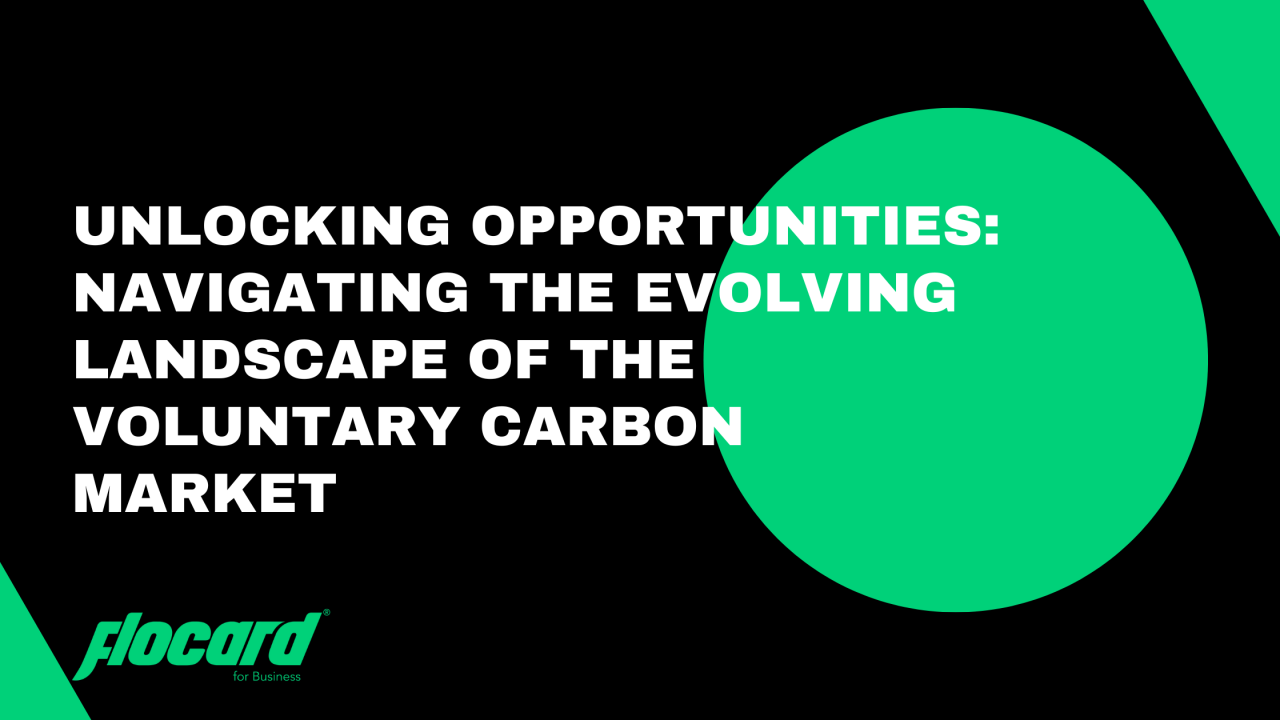The Next Wave: How Tech Innovations Are Shaping the Voluntary Carbon Market

Navigating the Future
The voluntary carbon market stands as a distinctive marketplace where organizations and individuals can purchase and sell carbon credits to offset their CO2 emissions and meet their net-zero objectives. Its uniqueness lies in offering everyone the chance to contribute towards a sustainable future.
This market has seen substantial evolution, driven by corporate sustainability efforts, advancements in standards and certification, technological progress, and a growing demand for transparency and credible evaluations. As the market expands, it opens doors to further innovations and opportunities for impact in the years ahead.
Emergence of Corporate Sustainability
Corporate sustainability refers to businesses' commitment to environmental sustainability through the adoption of eco-friendly practices.
The demand within the voluntary carbon market is increasingly fueled by corporate sustainability programs. Many companies have committed to reducing their carbon footprint, achieving net-zero emissions, or becoming carbon-neutral. The quest to fulfill these goals through premium carbon offsets has heightened the demand for carbon credits from reliable sources.
Such corporate initiatives have significantly spurred demand for carbon offsets, contributing to the growth of the voluntary carbon market. These efforts have expanded the reach of eco-friendly practices and fostered the adoption of stringent standards and certifications.
Growth in Standards and Certification
In the voluntary carbon market, the importance of certification and standards has surged. They lend credibility and confidence to buyers and sellers, offer a means to trace carbon credits and ensure their authenticity, and provide a framework for developing and certifying carbon offset projects. As a form of quality assurance, standards, and certifications verify the effectiveness and quality of carbon offsets in reducing greenhouse gas emissions.
Most commonly utilized standards in the voluntary carbon market include the Verified Carbon Standard (VCS), the @Clean Development Mechanism (CDM), the Gold Standard, and the Climate, Community and Biodiversity Standard (CCBS).
- Verified Carbon Standard: The VCS sets rigorous standards, offering a system for verifying and issuing carbon credits from projects that reduce greenhouse gas emissions. It includes strict criteria for project creation, monitoring, and verification.
- Gold Standard: Regarded as a premier regulatory body, the Gold Standard encourages projects that deliver sustainable development benefits to communities while reducing greenhouse gas emissions. This standard mandates projects to positively impact the environment and society.
- The Climate, Community and Biodiversity Standards: Established in 2005, it aims to conserve biodiversity and deliver sustainable development benefits to communities while reducing greenhouse gas emissions. This certification requires projects to positively impact the environment and society.
Technological Advancement
Technology plays an increasingly crucial role in the voluntary carbon market by enhancing transparency and efficiency, enabling businesses and individuals to manage their carbon offset projects and transactions more adeptly.
Significant technological advancements in the voluntary carbon market include blockchain technology, offering a transparent and secure method for recording transactions. This technology ensures the safe storage of carbon credits and allows for the monitoring of their ownership and transfer. Blockchain also enhances the legitimacy and transparency of carbon offset transactions and projects.
Carbon footprint calculators represent another technological innovation, allowing businesses and individuals to assess their carbon footprint based on various factors, such as energy consumption, transportation, and waste disposal. This information is used to determine the required amount of carbon credits and identify areas for emission reduction.
Criticism of the Voluntary Carbon Market
The efficacy of carbon offsets in genuinely reducing emissions has been a point of contention. Critics argue that carbon offsets enable polluters to continue emitting CO2 without actual emission reductions. In response, measures have been implemented to maintain confidence in the voluntary carbon market.
The market has largely overcome criticisms through standardization and certification. Organizations like the Gold Standard and the Verified Carbon Standard have set strict guidelines for certifying carbon offset projects. These guidelines help ensure the projects' additionality, measurability, and verification.
Conclusion
The voluntary carbon market is rapidly expanding as more entities strive to reduce their carbon footprints and pursue a sustainable future. The market has been significantly shaped by corporate sustainability actions, the advent of standards and certifications, technological innovations, and the push for transparency. While the voluntary carbon market has faced its share of criticisms, the establishment of stringent standards and certifications has addressed many concerns. The market's growth presents opportunities for significant impact and innovation. However, carbon offset projects must be genuinely novel and effective to maximize their contribution to greenhouse gas emission reduction.
Transform your engagement in the voluntary carbon market with Flocard . Utilizing modern technology and a commitment to transparency, FloCard enables individuals and businesses to efficiently reduce their carbon footprint. Join us in driving impactful change for a greener future. Partner with FloCard today for sustainable tomorrow.
